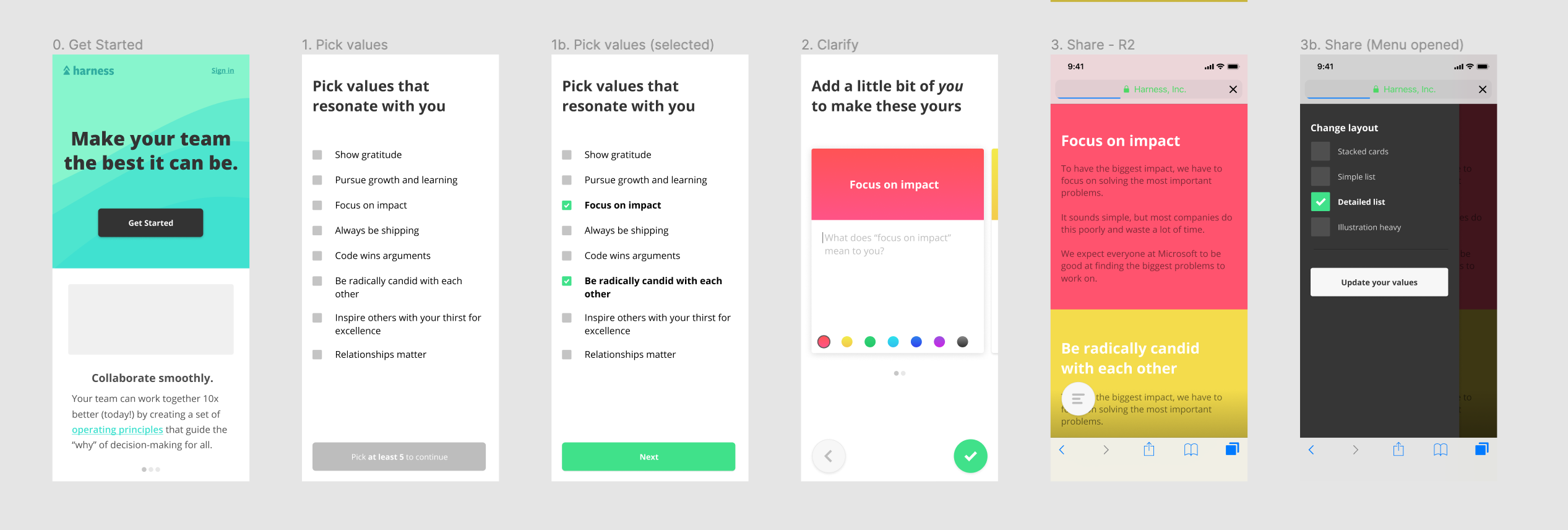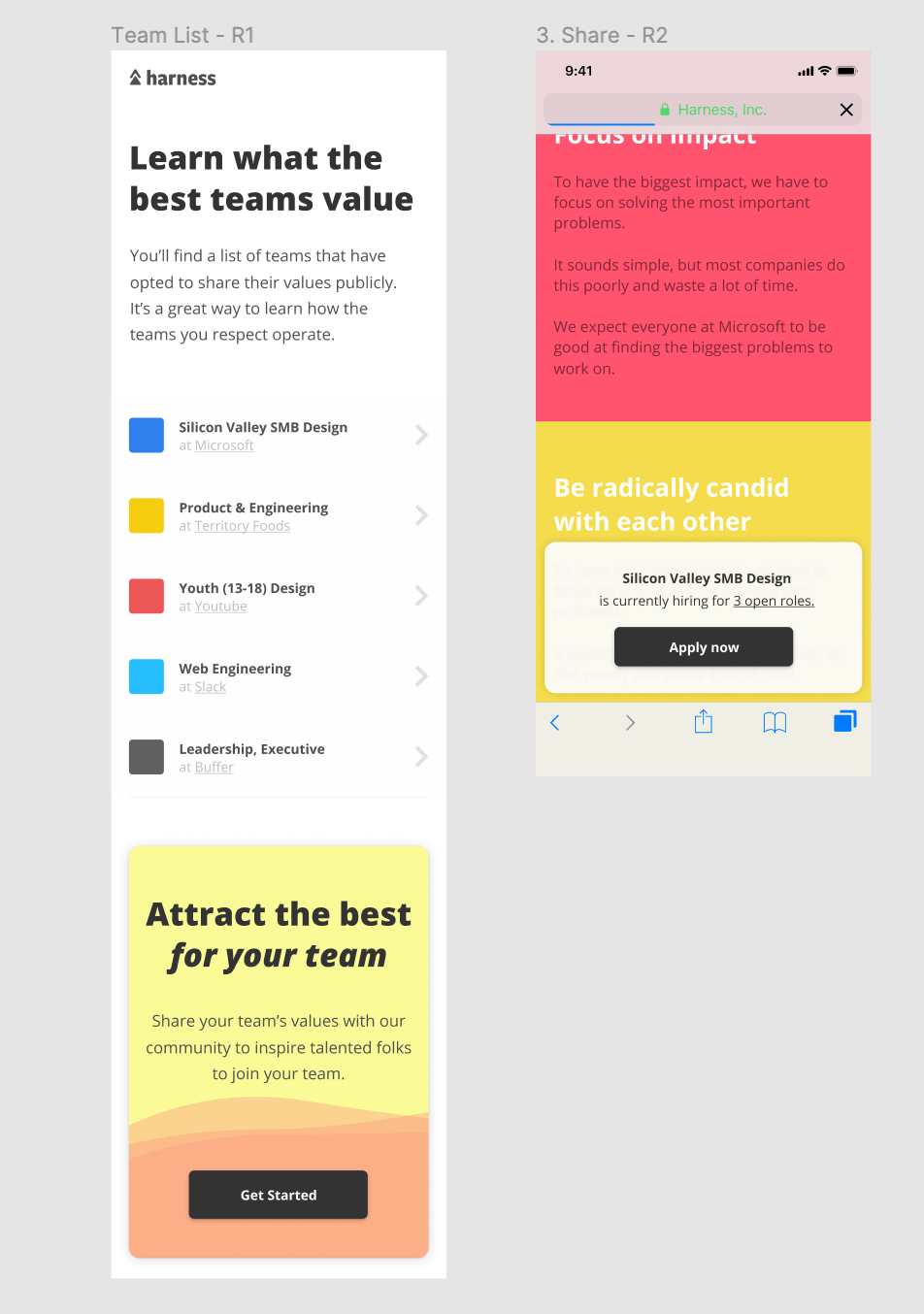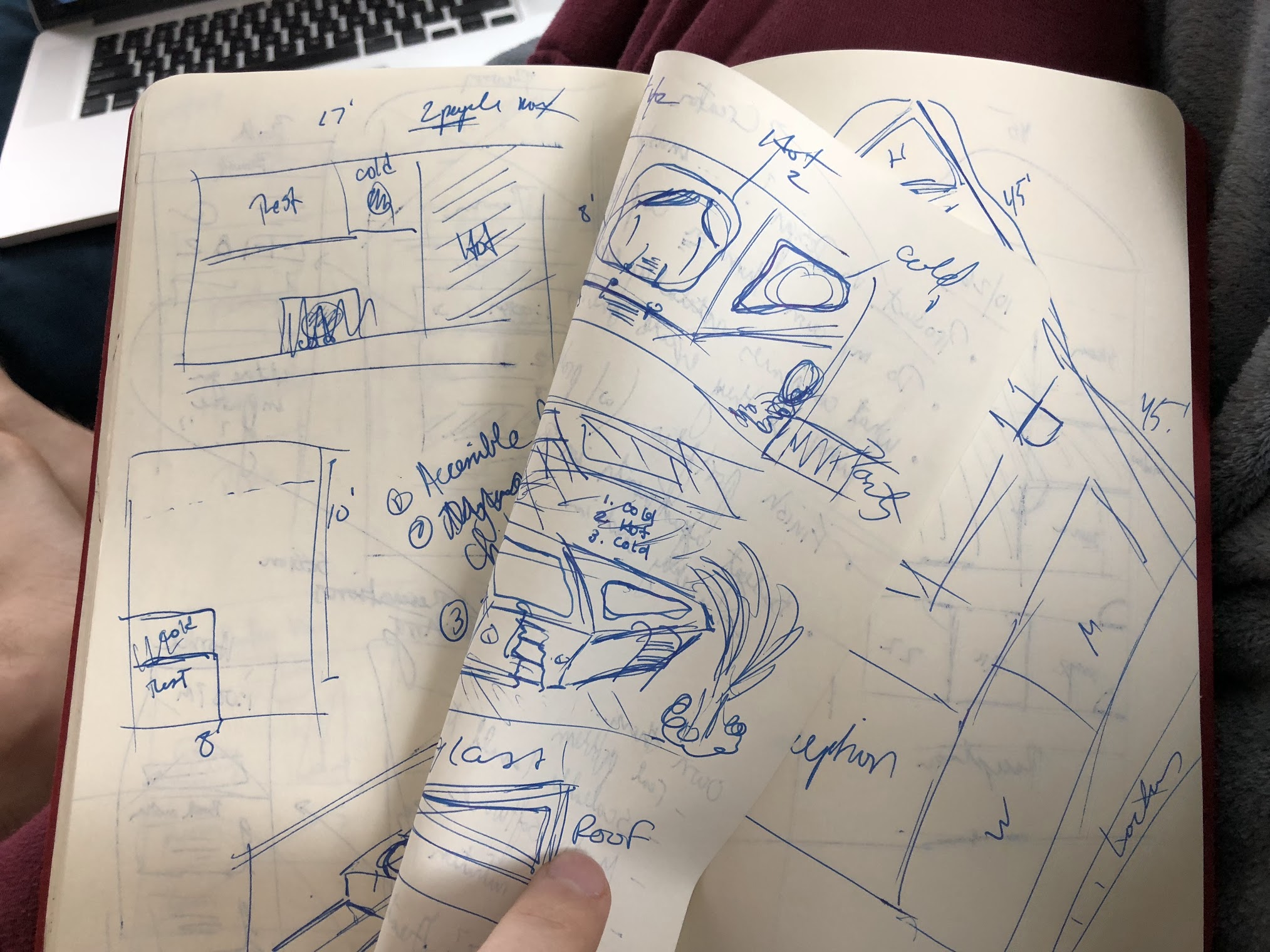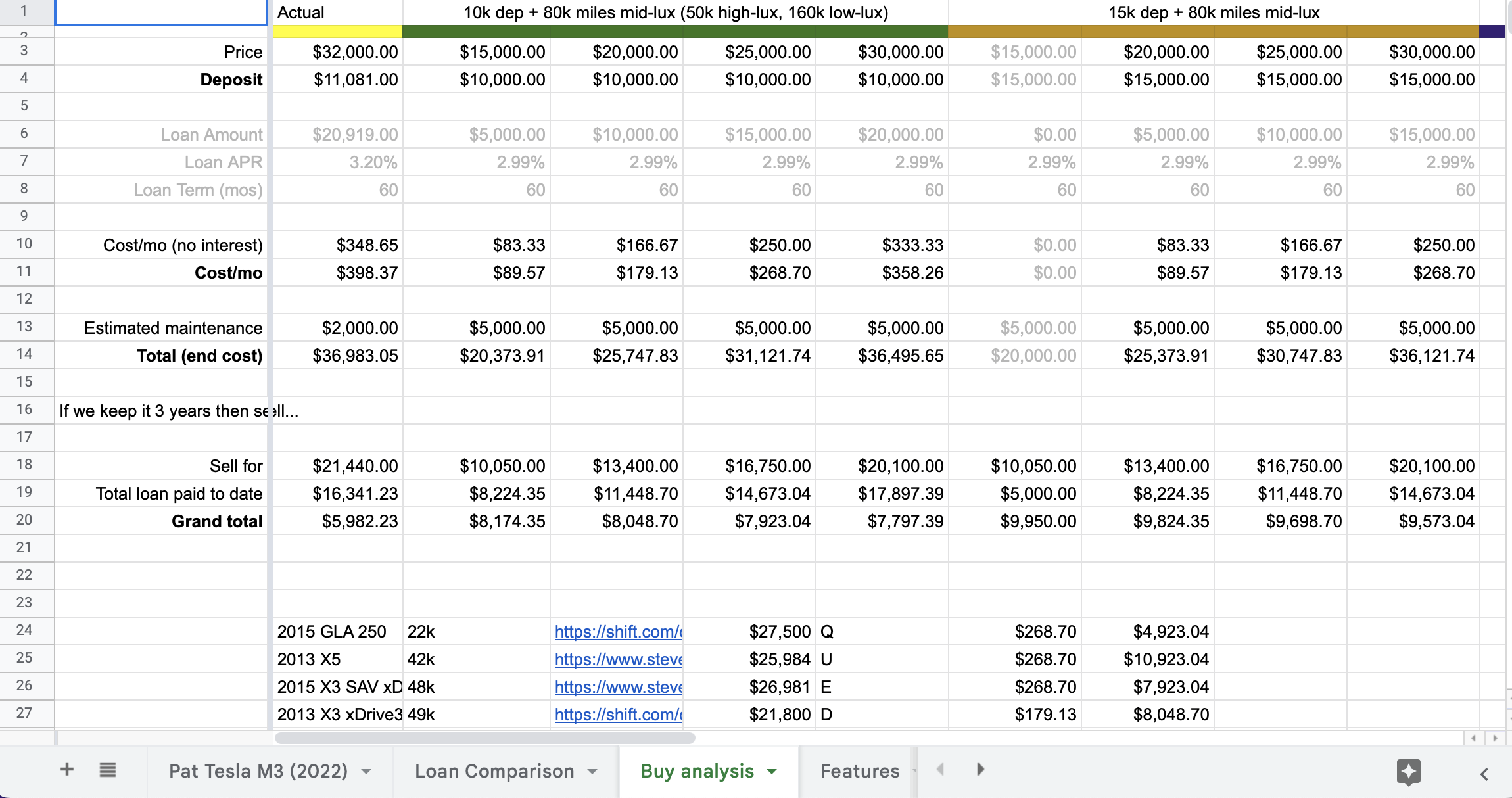New Years (2018) opportunity mapping
At the end of last year, I left a company I loved after 4 years of building. Leaving is never easy or simple, but it was time.
I gave myself space, and when I was ready, I started looking for my “next thing.” I spent the first two months of 2018 doing weekly design sprints.
- Monday I picked an idea,
- Tuesday through Thursday I’d research and validate,
- Friday I’d recap what I learned and how I felt about the concept.
- Next Monday I’d start on the next idea. I figured I’d do this for at least 2 months to get a breath of fresh air.
By the end of February I found a problem I’m stoked about—holistic nutrition programming—so that’s what I’m dedicating all my time to next.
But, there were a few promising concepts I didn’t pursue for one of two reasons: 1) market timing not right, or 2) it’s not right for where I am today. I wanted to jot these down publicly, and share some of my thoughts in case it sparks anything for other entrepreneurs. If something sparks, feel free to run with it.
#1 Hiring through principles
The best teams I’ve worked on have had a shared set of values or principles that help them make decisions.
These values are subjective, with different teams of people valuing different things. One team may value “showing gratitude often”, while another team may place emphasis on “code wins arguments”.
Most teams stumble on these shared values by accident, and rarely write them down. Only the most disciplined teams are intentional about writing these values down together, and keeping them up-to-date, a la Ray Dalio and his “Principles” book.
I explored what it’d look like to help standalone teams identify their values, share them, use them as decision helpers, and keep them updated over time. I imagined a product that could be adopted by any team member at any company, a la Slack’s grassroots enterprise strategy. You’d target team leads and managers, present this as a tool for alignment, to move more quickly in-step together, with fewer conflicts and better outcomes.

You could start asking individuals to fill out the values they find most important. Folks would find this personally helpful in their professional careers. It’s one of the first things most executive and leadership coaches do with their clients.
Once you have enough teams self-identifying their values from a set list, you could open up to recruiting. You have standalone teams at different companies that have identified values they care most about, and potential candidates that’ve done the same.
How useful it’d be to transform the ever-cloudy “culture fit” into something concrete you can point to! From practicing this first-hand with past teams, I know how beneficial this sort of “team self-awareness” is to inclusive hiring efforts — you focus more on nurturing people, less on skill-gates or shared background biases.

#2 Space to unwind
The world is getting more connected, packed with more noise, more “always-on” stress, and it’s only accelerating. While it feels like we’re getting more connected thanks to the internet, we’re suffering from “lower quality” time spent (through chats, tweets, memes, etc.)
I think that the need to “disconnect”, “recharge”, and “reconnect with others” will only grow stronger as tech becomes more pervasive and invisible.
I explored what it’d look like to help folks share their unwind rituals together. Some people go on a hike. Others sit down to read a book. Some enjoy cooking. Others play video games with friends. I imagined what a more personal Meetup-for-unwinding looked like.

I know, I know… working on community-building (er, social network??) is like working on the next weather app. But I really feel like there’s so much potential here. I even waded into subscription box model territory, wondering what “Unwind Kits” could look like (speaking of, little plug for my friends at Maude who are making more inclusive sex positive products — a great way to unwind!)
One practice that I’ve enjoyed around the world—that I haven’t found as popular in America—are bathhouses. These are places with soaking tubs, cold plunges, saunas, steam rooms, etc. made for relaxing and socializing.
I personally believe that having a physical space — where folks can disconnect, recharge, and spend quality time with friends; something that can become an easy, frequent ritual – will be in high demand. Group-based fitness (a la CrossFit, SoulCycle, Orange Theory, etc.) is on the rise thanks to the motivation aspects of community. Why not the same for mental health?
I think a bathhouse is the perfect way to unwind.
It takes no effort (vs. going to the gym. for a workout, or driving out for a camping trip.) It’s super enjoyable and relaxing. It can be affordable. It can be done everywhere. And the health benefits of “contrast therapy” (hopping from hot to cold to hot) are getting more and more recognition), from helping with immune system reaction, cardiovascular strength, appetite neuro-regulation, and positive mental health.
Drawing inspiration from a few of my favorite spots (like Knot Springs in Portland, and Watercourse Way in Palo Alto), I imagined what an affordable, scaleable “SoulCycle of bathhouses” looked like.

The spaces would be public, the membership monthly, the space designed to be accessible for all folks. Software would help improve some of the crappy experiences you might find with a shared membership model (a la Gold’s Gym, when they maximize memberships regardless of the impact it has on crowdedness) — imagine being able to reserve time, or know when the bathhouse was most busy by glancing at an app. Offering short-term childcare could really help folks who most need some mental space.

#3 Mental-Health-as-a-Service for communities
I’m an avid esports watcher, and find myself on Twitch often. I’ve seen some typical “big community” problems show up while watching streamers: harassment, sexism, and self-harm.
While I think streamers and viewers have the power to seriously curb harassment and sexism through taking a stand + calling offenders out, most folks are definitely not well-equipped to handle any self-harm that shows up.
Worse, most online platforms that host communities like Twitch (Youtube, Reddit, etc.) have shitty policies around this, e.g. if a person is reported for self-harm, they’ll get kicked off the platform.
I think there’s room for online therapy companies to offer a plug-and-play service (similar to Intercom, or an API like Stripe) that make it easy to connect someone with a mental health professional.
Let the community report folks who need help, the mental health pros get connected and offer help. Platform covers the initial cost, and the reported member can decide to continue with therapy after the first session.
Folks who need help can find it easily, the platform gets to take better care of their community without investing a ton on their own health & safety teams, and the online therapy companies get a reliable customer acquisition channel.
#4 Planning personal finance
When I talk to friends about personal finance here in the US, I’m always surprised at what I hear.
A lot of folks don’t really “do” personal finance. If they save anything, it’s usually behind-the-scenes (eg. 401K, mortgage), or it’s a “yeah I just keep my money in savings”.
Me: “… wait, how much cash do you have just sitting there?? 😱”
The folks who don’t save usually live mostly paycheck-to-paycheck: “I have too much to pay to save anything”, but when I ask about budget, they throw their hands up in the air.
When I ask about their biggest purchases (usually a car or a house), I’m blown away that folks didn’t plan: no shopping around to compare rates, no planning out the long-term cost of different rates, down payments, and “hidden” fees, etc.
There are 3 problems I wanted to help folks tackle: 1) planning their finances (e.g. budgeting, bills, goals); 2) planning their investments; and 3) planning their big purchase decisions.
For #1 — I have a monthly cash flow timeline spreadsheet that’s brought a to of stability and clarity to my expenses and income. Before this, I used to forget bills (and fees), I used to run out of money (“ugh, can’t pay X this month”), I used to feel way less in control when unexpected things like a parking ticket showed up, and saving money was pretty freaking hard. I’d love to see if productizing this monthly cash flow timeline can help others.
For #2 — I was lucky that early in life some random rich guy decided he wanted to teach me about investing.
He made me open up an account at Vanguard, transfer some savings over, and buy my first mutual fund. He also taught me a few principles, e.g. hold long-term because the market will always go up (uh, and if it doesn’t, the world is probably f’ed and your cash probably wouldn’t be worth much anyhow.) From there, I gained the confidence to save more and learn how to put together a basic investment portfolio across stocks, bonds, funds, and ETFs.
I’ve helped a few friends do this, and it’s pretty magical to see their reactions when they learn that their money is making more money just by sitting there. Learning how to save money + invest it has probably been one of the largest contributors to my personal wellbeing.
There are a LOT of products out there that help folks with this, from apps like Robinhood to books by “experts” like Ramit Sethi. But I can’t shake the feeling that something hasn’t clicked yet, because none of the folks I talk to about personal finance have ever picked up a book, or heard of products that help them. Feels like there’s a branding/culture opportunity here.
For #3 — I’ve helped friends piece together spreadsheets to learn things like “which car should I buy?” to “should I sell my house?” — I’m sure there’s a name for this sort of planning, but it all boils down to mapping out various potential scenarios.

For example, when buying a car, I’d map out different scenarios with different variables:
- Total prices
- Deposit amounts
- Loan rates
- Estimated maintenance costs
- Registration + tax costs
- Potential resale points
- Important non-monetary values to you (e.g. style, comfort, ruggedness)
At the end of the day, you’re able to make a super well-informed choice on which set of conditions is right for you, e.g. I’ll take the more expensive use Toyota over the slightly used Mercedes because of X, Y, and Z. I’d love to to see if it’s worthwhile to productize this “scenario mapping” for different classes of big financial decisions, mainly buying/selling cars and homes.